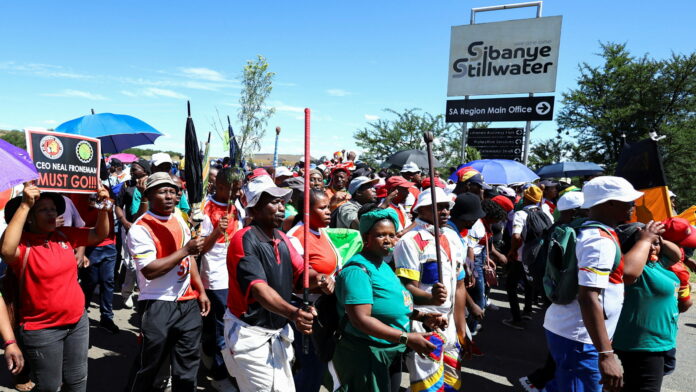
UNIONS and their members “lost out badly” for sustaining a strike at Sibanye-Stillwater’s gold mines for three months, said BusinessLive citing the views of Azar Jammine, chief economist at Econometrix.
“The unions have lost out badly. They lost a fortune of money for having been out on strike for so long, and they have not got so much from the proposed wage deal,” he told the publication on Monday.
A coalition of the National Union of Mineworkers (NUM) and the Association of Mineworkers & Construction Union (AMCU) called off the strike over wages on June 3 after members accepted an offer mediated by the Commission for Conciliation, Mediation and Arbitration.
The agreement effectively offered entry level workers at Sibanye-Stillwater’s mines an average increase of 6.3% over three years. However, more than R1.2bn had been forfeited in wages during the strike, said BusinessLive.
The coalition demanded an increase of R1,000 equal to a 9.8% rise in year one, 8.8% in year two and 8.2% in year three for entry-level workers, including surface and underground miners. It rejected the company’s final settlement offer for increases of 7.8% in basic wages in year one, 7.2% in year two and 6.8% in year three, and a R50 hike in the living-out allowance.
“The only losers are the workers if they carry on with the strike. Union leaders and company management get their salaries irrespective, but the workers don’t,” said René Hochreiter, an analyst for Noah Capital Markets and MD of Sieberana Research.
William Mabapa, general-secretary of the NUM, rejected these criticisms, however. He said they were “not correct”.
“They lost [nearly] three months’ worth of wages in the process, which is a lot of money,” Jammine said, adding that it will take them years to recoup their losses. “They lost out financially quite badly. And it’s not the first time.”
AMCU ran a five-month strike from November 2018 at Sibanye’s gold operations which cost the company R1.6bn and 110,000 ounces in lost production of gold. Nine people died. Workers forfeited R1.5bn in pay during the strike, after which AMCU accepted terms that had been accepted by NUM, Solidarity and UASA, said BusinessLive.
The wage agreement is due to be signed on Thursday.











